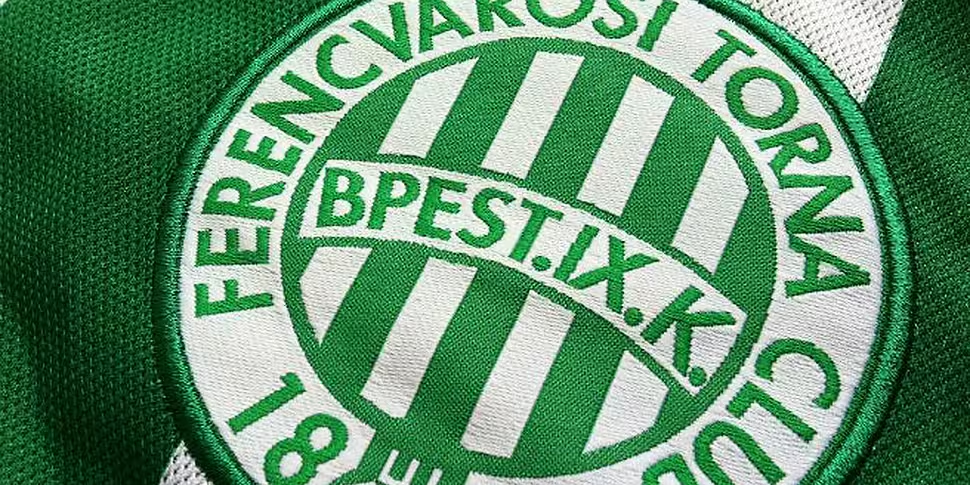It’s probably a little known fact on these shores, but Sligo Rovers’ FAI Cup final hero Anthony Elding had a short spell at Hungary’s most popular and successful club Ferencvaros.
The English striker who recently signed for Cork City spent six months at the Budapest side between the 2010 January transfer window and that summer when he returned to English football.
But it was a successful spell on a personal level as the 31-year-old finished the season as club top scorer with eight goals and three assists in 15 games as Fradi, as they are colloquially known, managed a 7th placed finish.
However that was most certainly a transitional season for Ferencvaros, the only Hungarian club to win a European trophy (1965 Fairs Cup) who were making their return to the top flight after a three year sejour in the second tier.
Their problems first emerged ten years ago as debts piled up despite becoming the first Hungarian side to be floated on the Budapest Stock Exchange in 2003.
By the end of the 2005-06 season their financial problems had worsened to a point where the Hungarian FA refused to grant them a top flight licence which precipitated that three year stay in the second tier.
In 2008, Ferencavros were bought and saved from bankruptcy by Sheffield United chairman Kevin McCabe and so started a period of English influence which saw managers such as ex-Leeds striker Bobby Davison and former Everton and Blackburn defender Craig Short arrive and the signings of Elding and ex-Sheffield United players like James Ashmore and James Lowton (on loan) who is currently a regular at Aston Villa.
Davison managed to achieve promotion, while Short consolidated their position in the Nemzeti Bajnoksag I.
But the 28-time champions have not been able to return to the very top of Hungarian football since then. Apart from a third place finish in 2010/11, Fradi have been rooted in mid-table, while the English influence has waned.
Short was the last manager from Blighty and by 2011 McCabe gave the club back to Hungarian hands after detailing a “strained relationship” with elements with minority shareholders.

But in many ways, Ferencvaros’ stagnation is not an isolated case in Hungarian football. Indeed, it is well documented that there has been a general decline among Budapest clubs since the fall of the Iron Curtain.
Ferencvaros have not won the league title since 2004, while the last club from the capital to win the Nemzeti Bajnoksag I was MTK Budapest in 2008. But even they were relegated in 2011, although they did bounce back at the first attempt. The other formerly successful Budapest clubs have achieved little over the past decade.
Ferencvaros’ great rivals Ujpest last won the league title 15 years ago. Meanwhile, ex-army club Budapest Honved which was among the world’s great club sides in the 1950s and provided the backbone of the Magical Magyars team like Ferenc Puskas and Sandor Kocsis have also fallen on hard times and have not won a league title in 20 years.
The Budapest void has been filled by former also-rans like Debrecen who have won six league titles since Ferencvaros last triumph, Gyor and Videoton.
But what are Ferencvaros doing to try and inspire a Budapest revival?
Ferencvaros are going down the stadium expansion route. The Albert Florian Stadion which has been there home for over a century will be expanded from 18,000 to 25,000. Fradi played their last game at the ground in March and expect to be hosting matches there again this time next year.
The initial plans to expand the stadium began in the McCabe era and although the old stadium was already the biggest club ground in Hungary by a small margin, the reconstructed one will be almost 10,000 seats larger than the next largest club stadium – Gyor’s ETO Park.
It would also dwarf those of its city rivals. Honved’s ground has a capacity of less than 10,000, while MTK and Ujpest’s stadiums are around the 12,000 – 13,000 mark which will be almost half the size of the Albert Florian Stadium.
But there is also the challenge of getting fans through the turnstiles. Attendance figures in Hungary are quite low. Depsite their recent troubles, Fradi still have one of the highest attendance rates in the Nemzeti Bajnoksag I. But it is a relatively lowly average of 6,000 (Diósgyöri VTK was the highest last season with average gates of 6,500).
However, there is potential for Ferencvaros. They had the highest one-off attendance in the country last season and were the only club to record an attendance rise in comparison to the previous campaign, with the sole exception of Budapest rivals MTK who were enjoying their first season back in the top flight.
Ferencvaros and Debrecen are the only Hungarian clubs to reach the Champions League group stages (in 1995/96 and 2009/10 respectively). But Fradi know that a new stadium alone will not propel them into Europe’s elite competition.
However they will hope that it can help pave the way for greater success on the domestic front.









